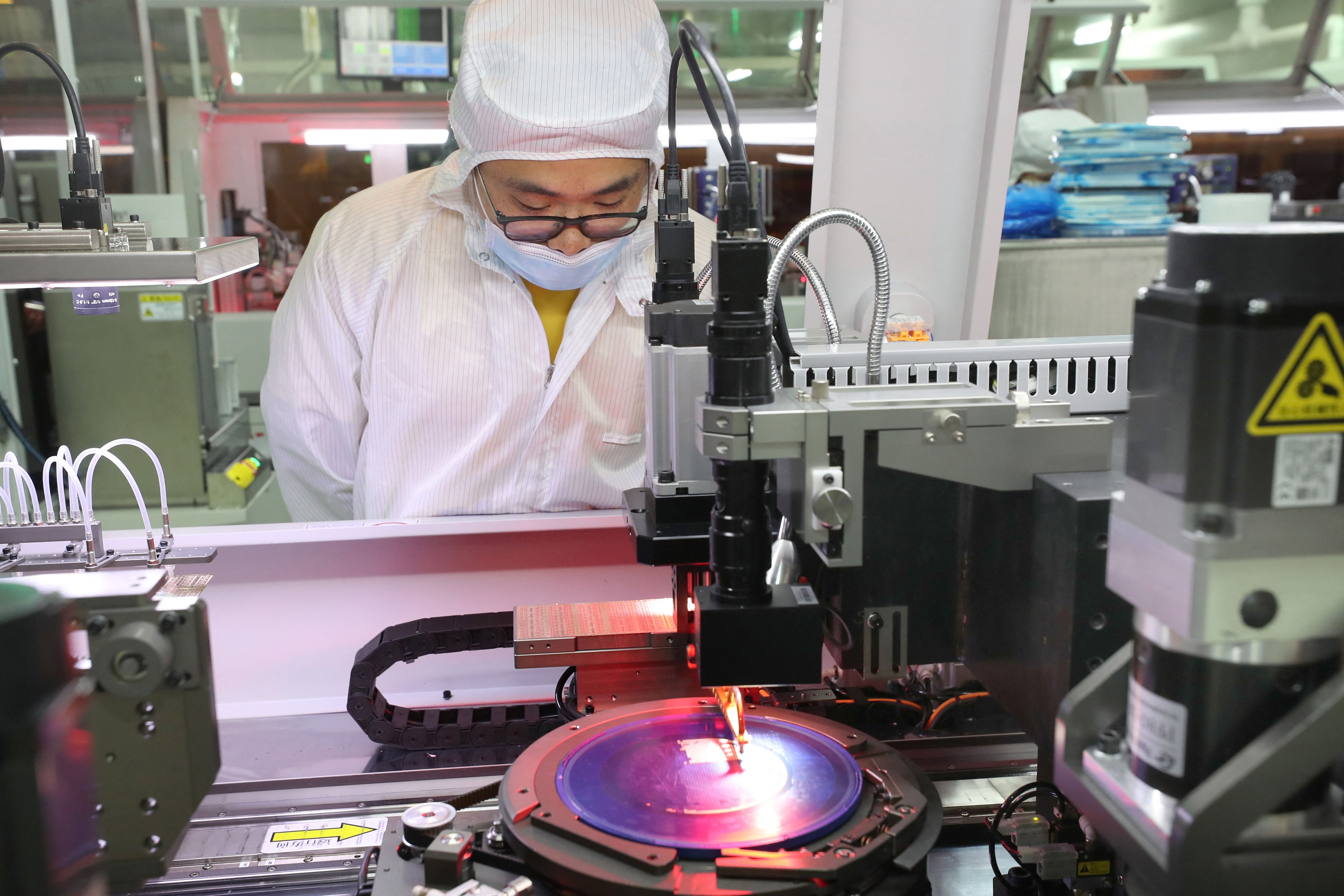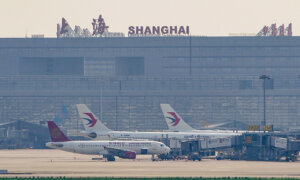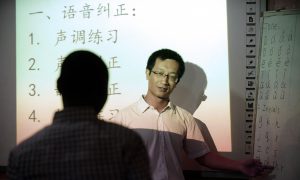Top U.S. lawmakers have urged Japan to take measures to restrict Japanese companies from selling semiconductor chip-making equipment to China in an official letter in recent days.
John Moolenaar (R-Mich.), chairman of the House Select Committee on the Chinese Communist Party, and Rep. Raja Krishnamoorthi (D-Ill.) expressed their concerns over “the flow of Japanese semiconductor manufacturing equipment to China” in the letter to Japanese Ambassador to the United States Shigeo Yamada on Oct. 15. They warned that if Japan fails to take action, Washington may put restrictions on the Japanese equipment companies and ban them from receiving U.S. semiconductor subsidies.
The U.S. lawmakers rejected arguments that the restrictions on sale to China had a material negative effect on chip equipment companies such as Tokyo Electron. They said in the letter that the claims that these companies “have been hurt by multilateral export controls do not appear to stand up to scrutiny.”
Citing the sharp rise of share prices of Tokyo Electron, ASML, Lam Research, and Applied Materials, as well as billions of U.S dollars and Euros in chip subsidy programs, the lawmakers said that the companies’ claims of being negatively affected by the export controls were “not particularly persuasive.”
However, China remains a lucrative market for all chip tool manufacturing companies, and officials in Japan and the Netherlands are reluctant to impose further export restrictions.
Moolenaar and Krishnamoorthi stressed in the letter the importance of cooperation among the United States, Japan, and the Netherlands—home to five of the most important semiconductor tool manufacturers in the world—in slowing China’s ambition to dominate the global chip market.
The lawmakers said the continuing exports of U.S., Japanese, and Dutch chip manufacturing equipment to China would give the ruling Chinese Communist Party (CCP) “a functional veto“ over the three nations’ ability to produce weapons systems and modern consumer goods ”at necessary levels.”
They said multilateral action remains the best way to deal with the threat from China.
They also said the United States’ other options include tightening subsidy rules. Once a company sells advanced chip equipment to China, it will not be able to obtain U.S. semiconductor subsidies.
The U.S. unilateral measures, which have bipartisan support, also include the expansion and strengthening of the Foreign Direct Product Rule “to ensure that any sophisticated SME machine produced with any U.S. technology in Japan or elsewhere requires a U.S. export license” before export to China.

A worker walks outside the new semiconductor plant by Japan Advanced Semiconductor Manufacturing Co., a subsidiary of Taiwanese chip giant TSMC (Taiwan Semiconductor Manufacturing Co.), in Kikuyo of the Kikuchi district, Kumamoto prefecture, on Feb. 14, 2024. (Philip Fong/AFP via Getty Images)
Japan hasn’t publicly responded to the letter.
Su Tzu-yun, researcher and director of the Division of Defense Strategy and Resources at Taiwan’s Institute for National Defense and Security Research, told The Epoch Times on Oct. 19 that Japan’s reluctance to restrict exports of chipmaking equipment to China could be caused by its huge trade deficit with China, which is continuing to expand.
“China has continued to purchase chip manufacturing equipment from Japan in large quantities, so the Japanese government is unwilling to take any action,” Su said.
Wang Shiow-wen, assistant researcher at Taiwan’s Institute for National Defense and Security Research, told The Epoch Times on Oct. 19 that Japan has not officially restricted the export of semiconductor equipment to China, mainly because it is still waiting to see the results of the Nov. 5 U.S. election.
“Trump and Harris may have differences in their China policies,” Wang said. “Also, since China currently almost has a monopoly on the production of major rare earths, Japan is also worried that the ban on semiconductor equipment will trigger China’s trade retaliation on rare earths. This not only affects the production of Japanese semiconductor materials and equipment, but also affects the Japanese automobile industry. In particular, China has already stated that it will retaliate against Japan if the exports of chipmaking equipment to China are restricted.”
Moolenaar and Krishnamoorthi wrote in the letter that the CCP is actively using semiconductor equipment from the United States, Japan, and the Netherlands to establish the world’s largest semiconductor manufacturing industrial base. The chip level that China is trying to dominate “is the lifeblood of modern economy and modern military, forming the foundation of almost every electronic and every weapons system in circulation today.”

An employee makes a chip at a factory of Jiejie Semiconductor Company in Nantong, Jiangsu Province, China, on March 17, 2021. (AFP via Getty Images)
As to China’s chipmaking capability, Su said that it can already produce advanced 12-nanometer chips using Chinese-made chipmaking equipment, “although the yield rate is not good.”
“Now, it’s trying to use domestically made equipment to produce 7 nanometers (nm), and this is the last line of defense and threshold, which is what democratic countries strive to defend,” Su said.
“In this case, if Japan provides equipment for the CCP to mature and stabilize its 12 nm chip production, it will help it to focus on and further develop its ability to make 7 nm chips, which becomes a potential threat.”
Wang said that based on the closeness of the U.S.–Japan alliance, the Japanese government would eventually follow the United States in the chipmaking equipment ban.
“At present, the Japanese government is just seizing the time to devise more comprehensive measures,” she said. “Especially now, because of China’s anti-Japan sentiments and the murder of a Japanese child in China, the Japanese automobile industry has begun to withdraw its investment from China. Perhaps soon, when the number of Japanese companies in China decreases, the Japanese government will start to take a tougher stance on China.”
Luo Ya contributed to this report.










